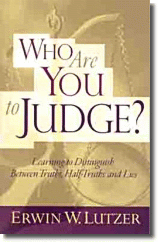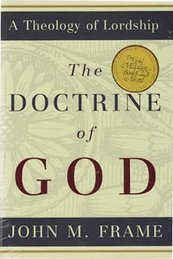Most Christians believe that God sent his Son to save us. If we believe in him (John 3) through faith [1], we would be saved. But on the point of ‘for whom is the redemption applied to’, there is some disagreement. This is not without reason. In the bible, there seem to be various verses that teach a universal reference for the saving work of Jesus Christ (John 12:32; Rom 3:22-24; 5:18; 8:32; I Cor. 15:22; 2 Cor. 5:14-15; I Tim. 2:5-6; Tit. 2:11; Heb. 2:9) or a universal saving will on God’s part (Rom. 11:32; 1 Tim 2:4; 2 Pet. 3:9).(Dr Robert Reymond’s A New Systematic Theology of the Christian Faith [ANSTCF], p. 685)
So, for whom did God die? Maybe it will be good to start examining this issue by turning to biblical passages, and beginning with our most familiar passage, John chapter 3, focusing especially on verse 16.
John 3:10-20 (New International Version)
10"You are Israel's teacher," said Jesus, "and do you not understand these things? 11 I tell you the truth, we speak of what we know, and we testify to what we have seen, but still you people do not accept our testimony. 12I have spoken to you of earthly things and you do not believe; how then will you believe if I speak of heavenly things? 13No one has ever gone into heaven except the one who came from heaven—the Son of Man. 14Just as Moses lifted up the snake in the desert, so the Son of Man must be lifted up, 15that everyone who believes in him may have eternal life.
16"For God so loved the world that he gave his one and only Son, that whoever believes in him shall not perish but have eternal life. 17 For God did not send his Son into the world to condemn the world, but to save the world through him. 18Whoever believes in him is not condemned, but whoever does not believe stands condemned already because he has not believed in the name of God's one and only Son. 19This is the verdict: Light has come into the world, but men loved darkness instead of light because their deeds were evil. 20Everyone who does evil hates the light, and will not come into the light for fear that his deeds will be exposed.
John 3:16
The word ‘world’ quite likely has the same meaning as in I John 2:15. Warfield, for example, commented that:
[The term “world”] is not here a term of extension as much as a term of intensity. Its primary connotation is ethical, and the point of its employment is not to suggest that the world is so big that it takes a great deal of love to embrace it all, but that the word is so bad that it takes a great kind of love to love it all, and much more to love it as God has loved it when he gave his son for it. … The passage was not intended to teach, and certainly does not teach, that God loves all men alike and visits each and everyone alike with the same manifestation of love: and as little was intended to teach or does it teach that his love is confined to a few especially chosen individuals selected out of the world. What it is intended to do is to arouse in our hearts a wondering sense of the marvel and mystery of the love of God for the sinful world –conceived here, not quantitative but qualitatively as, in its very distinguishing characteristic, sinful. [See B B Warfield, “God’s Immeasurable Love,” in Biblical and Theological Studies (Philadelphia: Presbyterian and Reformed, 1952), p. 516, emphasis in bold is mine]
Indeed, the “wondering sense of the marvel and mystery of the love of God for the sinful world” is stressed in chapters 13-17 of the John Gospel. As Dr D A Carson wrote:
Both the verb ‘to love’ (agapaō) and the noun ‘love’ (agapē) occur much more frequently in chs. 13-17 than anywhere else in the Fourth Gospel, reflecting the fact that John devotes special attention to the love relationships amongst the Father, the Son and the disciples. (PNTC, 1991, p. 204)
Warfield is not alone in this interpretation. John Gill, an eminent 18th century Baptist theologian, in his commentary on John, wrote: “Not every man in the world is here meant, or all the individuals of human nature; for all are not the objects of God’s special love, which is here designed.” Therefore, it is most likely Warfield is correct in saying that "world" in John 3:16 means "sinner"—without stating which ones. It seems that the "world" in John 3:16 is not to teach ‘election’ or ‘universal redemption’. John 3:16 would be analogous to Rom. 5:6 (‘For while we were still weak, at the right time Christ died for the ungodly.’) where Paul states that Christ died for the "ungodly"—without stating which ones.
The “For God so loved the world” in John 3:16 show that God loves both the elect and the non-elect. There is no doubt on this, since other bible passages (both OT & NT) support this. In the OT, for example, we have Psalm 145:9: “The Lord is good to all, and his mercy is over all that he has made.” In the NT, we have Luke 6:35 (“he is kind to the ungrateful and the evil”). Here, God teaches us love our enemies for even God himself loves all (includes the elect).
How do we define the “world” (cosmos) in John 3:16? The general redemption view assumes that this word must refer to each and every person that ever lived. However, this is not the biblical meaning. The BAGD defines “cosmos” in John 3:16 as referencing “all mankind, but especially of believers, as the objects of God’s love.” This, however, is a theological interpretation. From TDNT (vol. 3) and BAGD (pp. 446-447), it is clear that in the entire NT, there is no instances of cosmos referring to every single person who has ever lived.
How do we explain “For God so loved the world” in John 3:16? NT scholar Dr D A Carson pointed out that:
Because John 3:16 is sandwiched between vv.14-15 and v. 17, the fact that God gave his one and only Son is tied both to the Son’s incarnation (v. 17) and to his death (vv. 14-15). That is the immediate result of the love of God for the world: the mission of the Son. His ultimate purpose is the salvation of those in the world who believes in him […] (PNTC, p. 206, italics mine)
Indeed, if we were to look at the surrounding verses of John 3:16 (NASB), we see the repeated occurrence of the word ‘believe’ and ‘Son of God’:
v. 12: "If I told you earthly things and you do not believe, how will you believe if I tell you heavenly things?
v.13: " No one has ascended into heaven, but He who descended from heaven: the Son of Man.
v.14: "As Moses lifted up the serpent in the wilderness, even so must the Son of Man be lifted up;
v.15: so that whoever believes will in Him have eternal life.
v. 16: "For God so loved the world, that He gave His only begotten Son, that whoever believes in Him shall not perish, but have eternal life.
v. 17: "For God did not send the Son into the world to judge the world, but that the world might be saved through Him.
v. 18: "He who believes in Him is not judged; he who does not believe has been judged already, because he has not believed in the name of the only begotten Son of God.
In 7 verses (btw John 3: 12-18), the word ‘believe’ occurs 5 times and ‘Son of God’ (or ‘Son’) occurs 5 times. Though it seems much fairer to say God want to save everyone, the bible clearly shows that the ones who are saved (John 3:3,5, 15,16,17) are only those who “believes in him” (John 3:15, 16,18) and not everyone.
John 3:15-18 (NIV):
15that everyone who believes in him may have eternal life.16"For God so loved the world that he gave his one and only Son, that whoever believes in him shall not perish but have eternal life. 17 For God did not send his Son into the world to condemn the world, but to save the world through him. 18Whoever believes in him is not condemned, but whoever does not believe stands condemned already because he has not believed in the name of God's one and only Son.
John 3:15-18 (NASB):
15 so that whoever believes will in Him have eternal life. 16"For God so loved the world, that He gave His only begotten Son, that whoever believes in Him shall not perish, but have eternal life. 17"For God did not send the Son into the world to judge the world, but that the world might be saved through Him. 18"He who believes in Him is not judged; he who does not believe has been judged already, because he has not believed in the name of the only begotten Son of God.
As a conclusion, it can be seen that at the Synod of Dort, Calvinists is right to affirm that Christ’s death is sufficient for all but efficient only for the elect.
[1] There are 3 elements of faith: knowledge (the intellectual element; Mind), assent (the emotional element; Heart) and trust (the voluntary/volitional element; Will).



1 comment:
While I fully agree that "those who believe shall not perish but have eternal life," I am not ruling out the possibility that God may so decide to save the unbelievers if He so wishes. It's, after all, His will be done ultimately. It's not our job to decide who gets saved and who doesn't. I think that from several stories in the Gospels, it has shown me what wonderful things God can and will do for the most undeserving of all sinners. And would you agree that the most undeserving sinners of all would be the unbelievers?
Post a Comment